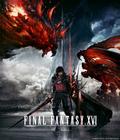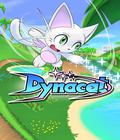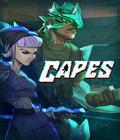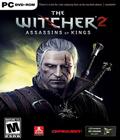The Witcher emerged from a Polish dungeon and took the RPG genre by surprise. Its gritty backdrop, based on the books by Andrzej Sapkowski, combined mature medieval fantasy, strange science and social cynicism in its grim hero, Geralt the Witcher. The Witcher's deep alchemy crafting and character development system put the developer, CD Projekt RED, on the RPG map. With The Witcher 2: Assassins of Kings, CD Projekt RED proves that its first outing was no fluke.
Taking place shortly after the events of the first game, The Witcher 2 imports your original Witcher save, though it weakens your armor and weapons, and not all of your cash makes it over. It's a good starting edge, but there's plenty later on that makes this look like practice gear. For those who like a sense of continuity, a few references are made to your choices in the first game, although they don't affect the story.
Geralt returns, still plying his trade as an alchemy-enhanced, monster-slaying Witcher, but he starts his new adventure languishing in chains and with some touches of amnesia. The plot can start at any of four points, depending on what you want Geralt to say to his interrogator.
Like its predecessor, The Witcher 2 couches choices between the racism against non-humans, pragmatic politics, clever characters and raw language. Scum and heroes are peppered throughout the three-chapter game, but they have as much blood on their hands as words on their silver tongues, leaving you plenty of room to second-guess ulterior motives and potential allies. Some of those decisions have far-reaching consequences to lend them meaningful weight.
Although the game is only three chapters long, it feels dense in how it tempts the player's sense of exploration — at least in the first two chapters. My own playthrough ran about 40 hours, but only because I spent as much time trying to track down every side-quest and getting into every fistfight that had a Quick Time Event (QTE) sequence. Even at its relatively short length, the journey to the end felt as rich because of what was there and not because of how little there might have been.
You're eventually challenged to pick a side so that the story can diverge along one of two major paths. Geralt's journal keeps a faithful accounting because his poetic friend, Dandelion, records plenty of written detail. Just as with the first game, CD Projekt RED didn't skimp. Instead of a pithy remark telling you to meet someone, entries are richly detailed, though they can sometimes be a little too vague on certain specifics.
CD Projekt RED's Tomasz Gop cited From Software's action-RPG on the PS3, Demon's Souls, as an inspiration, and the game cuts deep with it from the start. The Witcher 2's combat can be unforgiving, even on the Normal or Easy difficulty setting, and that's only at the starting prologue, when it's teaching you the ropes.
Instead of stringing together combos by timing mouse clicks to a flashing cursor to animate Geralt through the slaughter as in the first game, the onus is on the player to control the flow through a greater balance of careful attacks and maneuvering. If you weren't too much of a fan of the "Twitcher," this system can make combat feel as if Geralt is the "Button-Mashing Artful Dodger."
There's less of Geralt standing in place while twitching combo chains as there was in the first game. Doing that in The Witcher 2 will only turn Geralt into an ingredient for someone else's potion. Moving the third-person camera view to target foes allows Geralt to leap from foe to foe with a mouse flick, his blade stabbing at wherever it's pointing. Dodging is a lot more important, and running away is often the better tactic, especially when Geralt is often facing more than one enemy.
Another difference veteran Witchers will notice, and which I missed, are the lack of styles that were a big part of combat in the first game. Geralt still has a steel sword for handling regular folk and a silver blade for monsters, but the three styles associated with each one — group, quick and strong — were dropped. Instead, the left mouse button launches a general purpose "swift blow" and the right, a "strong blow." Whirl, which is something close to a group style, is a skill that has to be learned.
On the positive side, combat flows much better when you don't have to worry about switching between styles, so the player can focus more on the enemy. Quick strikes to peck at foolish guards, a strong blow to deal savage damage against armored foes, or a string of quick strikes followed by a crushing swing are left to the player's tactical imagination. Greasing the pace of combat with fewer switches might still not be everyone's cup of tea. As simple as it can seem from the outset, using it well depends a lot more on how much action you're prepared to handle.
If the original Witcher's action was as far as you wanted it to go, you might find The Witcher 2 to be a brutal hazing. But as ego-crushingly difficult as it can be on players as it was in Demon's Souls, it leaves enough of a chance to persevere — once you get used to it. The Witcher 2 will throw you into the fire more often than it actually paces things to ease you in. At the same time, it doesn't make things generically difficult by doing things such as having a monster fly up onto an unreachable ledge. There's always a way to survive that is within reach, whether it's changing the way you attack, downing a few potions beforehand, or feeding Geralt as much experience via side-quests as I did.
Character development also underwent a few changes from the first game, with skills and enhancements separated into four major branches, three of which are locked until enough progress has been made in the "Training" path. The lack of sword styles and statistical enhancements, such as for strength or intelligence, also makes this feel a lot lighter on the options compared to the first game, though there is enough to make it appealing. Even with a level cap of 35, players won't become the master of every skill in Geralt's book. For my part, I focused on Swordsmanship with a little dedicated to the Magic path. Each has enough bonuses to make them effective, depending on how you want to play, though not every skill seems useful. I never picked up the knife throwing skill, though the game lets you get away with it in one minigame. Geralt even has "bonus" abilities that he can earn when certain circumstances are met.
Quaffing potions in the middle of a fight is also out. Instead, that has to be done in meditation mode, which doesn't require an inn or a warm fire as it did before. If you want, Geralt can start meditating in the middle of the street while dwarves grumble their way to work in the morning. His natural regenerative ability covers the rest as he heals up, upgrades skills or simply lets time pass.
You used to be able to store extra items in a magic chest at inns, and it would be available to you from chapter to chapter. The Witcher 2 does away with this, adding another layer of realism that can be tough on hoarders. Nearly everything now has a weight, though there are plenty of crafting options — for armor, potions and swords — that make use of what you find. Though you might be racing back and forth from time to time, it's not unmanageable. Merchants loved me for the number of body parts I brought back, though they would only show it with the orens they gave up or the things I'd have them make.
Visually, The Witcher 2's living world is stunning even on the lowest settings as NPCs go about their daily work. It isn't a vast open sandbox, but each area — with the exception of the last one — holds plenty to do. Flames flicker against crumpled rock faces, Geralt's swordsmanship flows into every strike, and even the greasiest villain is dressed with great detail. The cut scenes are striking, and the musical soundtrack is an atmospheric mix of exultant highs and brooding lows. From the haunting vocals in the main menu to the final, action-packed battle, the background melody dramatically feeds into every scene.
The "premium" retail edition includes old-school goodies such as a map, a letter prop to add flavor to the experience, a music CD, a "making of" DVD, and even papercraft at no extra charge to early purchasers. There's also quite a bit of free DLC that CD Projekt RED had thrown in, including a side-quest, armor, and even the original Polish language track and subtitles. Though it can seem surprising, it's typical for a developer that had also showered the first game with free extra content, such as an "enhanced" version patch.
Along with what was mentioned before, though, The Witcher 2 isn't perfect. The ending slams the brakes on everything, but it still has a few key moments that hinge entirely on the player's decisions. There's little question about where the main story is headed, though. On the other hand, it's a cold reminder that even one man can't do everything, and in the unabashedly dark world of The Witcher, where nations jockey for positions of power, that's as much a harsh reality as Elven terrorists.
DLC issues also plagued the game at the outset, preventing many people from downloading the free stuff. The action-heavy nature of the title might also turn off a few people, and unless you have a decent machine, seeing The Witcher 2 on the highest settings might cause a few problems on PCs that don't quite meet the minimum requirements, even though there are plenty of tweakable options.
As with the original game, The Witcher 2: Assassins of Kings made me agonize over who to ally with, who to believe, and which side should benefit from a Witcher's skill. Every subtle choice suggestively pointed the way to further mischief and greater adventure. There's plenty to craft, imbibe, gamble and slay amid this twisting narrative. For me, it was the occasionally bitter fruit of consequence and the colorful characters cheerily serving it that made this a brilliant, rich journey into the deep mysteries and dark secrets of a land torn apart by the ruthless and the questionably virtuous. The Witcher 2 is an adventure that's well worth the coppers.
Score: 9.0/10
More articles about The Witcher 2: Assassins of Kings










 The Witcher 2: Assassins of Kings features all new dialogue, updated graphics engine, realistic environment, revamped day/night cycle, actions that affect AI behavior, more dynamic/spectacular/bloody finishing moves and plenty more.
The Witcher 2: Assassins of Kings features all new dialogue, updated graphics engine, realistic environment, revamped day/night cycle, actions that affect AI behavior, more dynamic/spectacular/bloody finishing moves and plenty more.

































